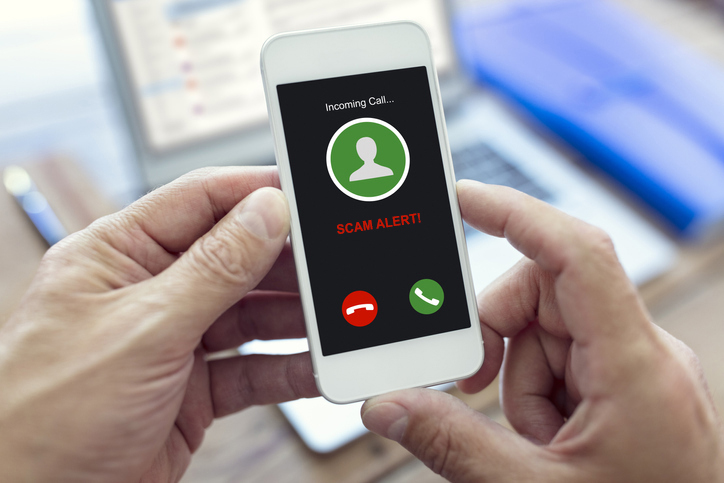Scams are a Real Threat

With New York electric rates dropping for spring, it’s prime time for scammers. They can be tricky to spot because scammers are more sophisticated every year. In fact, they might even come to your door and pose as a salesperson or inspector. For your security, it’s important you be able to tell the difference between real representatives and imposters. So, we created a comprehensive guide for how to escape and report a scam.
How to Spot a Scam
Here are five unmistakable signs you have a scammer on the phone or at your door.
- No badge. If you don’t see a National Grid badge or other utility or provider badge, ask to see it. Any company representative at your door will have a badge on-hand.
- Unannounced visit. Your electric utility or provider will always give notice of an in-person visit and will never show up looking for money.
- Ask for personal information. Providers may ask you to verify basic information like zip code or phone number, but they won’t ask for social security numbers, bank accounts, or anything secure.
- Pay with app. Scammers often want direct payment that’s difficult to refund like prepaid cards, Western Union transfers, or cash apps. In contrast, your New York electric company will never demand payment in these forms.
- Threats. An electric utility or provider is not going to put you in a high-pressure situation or threaten to turn off your electricity without immediate payment.
Common Scams
Although scammers are everywhere, they all tend to rely on similar ploys. This will help you pick them out.
Scammers target you over the phone. These days, they can even show up as your electric provider on caller ID! But when the red flags wave, it won’t matter what number the scammer calls from. Demanding immediate electronic payment and threatening to shut off your electricity are definite scammer moves.
Other scammers are bold enough to show up in-person. They demand payment or come up with an excuse to enter your house. Still others offer a new cheap electric plan to lower your bill. If they ask to see your last bill, don’t show them anything. They may try to steal your information. To beat them at their game, know that you can always double-check any information directly with your electric provider or utility.
If You Encounter a Scam
It’s possible you have already answered a call from a scammer and didn’t think much of it. However, other people are more at risk. When you find yourself on the line with a scammer, you should hang up and report the call to your electric provider or utility and the Federal Trade Commission.
Someone who knocks on your door is harder to ignore. But here are a few things to remember in that situation.
- Don’t cave to anything the scammer demands.
- Don’t let the scammer in your house for any reason.
- Call the police.
In the worst-case scenario, you may not realize until after you sent payment that you were scammed. It still might be possible to get your money back, according to the Federal Trade Commission, depending on how you paid.
Don’t Let Scams Win
An easy way to stay a step ahead of scammers is to use online resources. Setting up an account and payments on your provider’s website will give you peace of mind that your balance is always paid, despite what a scammer might say! You can also use the tools and information at at https://www.nyenergyratings.com to make sure you’re getting the best deal on your electric rates.

